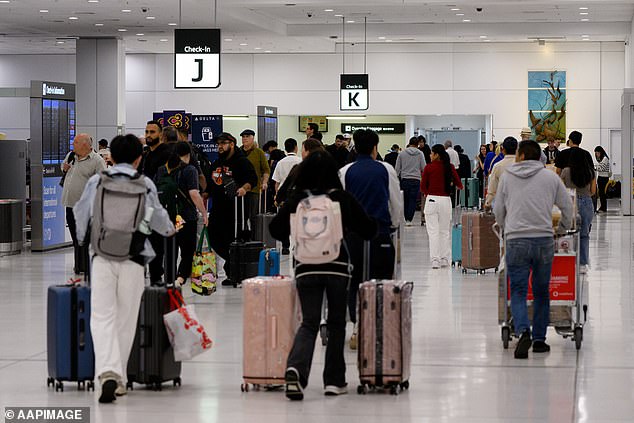Government board members and leaders of Commonwealth agencies will soon lose their business-class privileges on domestic flights.
The Remuneration Tribunal, an independent body which sets pay and employment perks for Commonwealth officials, on Thursday announced the major travel change.
The tribunal’s ruling comes after the Albanese Government last month quietly rejected the Finance Department’s recommendation that Commonwealth workers should travel economy on flights less than three hours long
Under the new ruling, from September 7, tier-two office holders will no longer receive taxpayer funds to cover business-class flights on domestic routes.
The move effectively forces those workers – including leaders of some government agencies, those serving on government boards and council members – to travel economy.
Affected agencies include High-Speed Rail Authority Board, Housing Australia, Renewable Energy Agency and the Independent Parliamentary Expenses Authority.
The Remuneration Tribunal also announced the removal of first-class international flights for all office holders.
The Department of Finance began a review of bureaucratic travel expenses following public backlash from commentator Joe Aston’s book, The Chairman’s Lounge: The Inside Story of how Qantas Sold Us Out.

The Remuneration Tribunal will require all tier-two government workers to fly economy on domestic flights

The announcement follows large public outrage in late 2024 over the free upgrades politicians received from Qantas
Aston’s 2024 book detailed a series of complimentary upgrades Qantas offered politicians, including at least 22 to Prime Minister Anthony Albanese.
The upgrades to business and first class were worth tens-of-thousands of dollars, raising concerns about corruption and bribes.
Analysis of expenses revealed $4million of taxpayer funds could be saved by forcing public servants to travel economy on short domestic routes.
‘There can be operational requirements to use business class on longer flights where government officials are expected to rest on the flight and arrive and commence work immediately,’ the report stated.
‘There are few operational requirements for shorter flights, especially those under three hours.’
Existing travel arrangement cover employees of roughly 150 Commonwealth entities.






